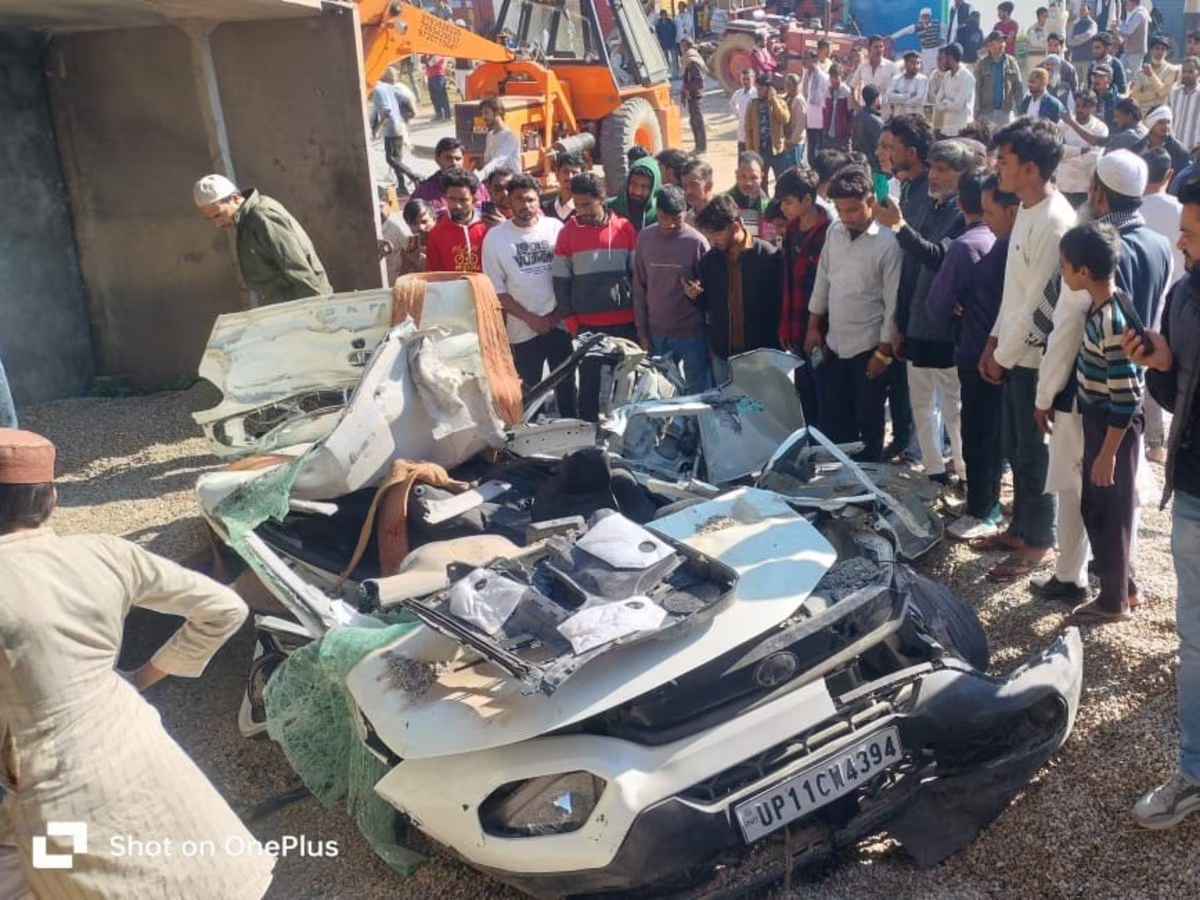PM Modi Slams Congress Over Waqf Law Amendments and Vote-Bank Politics, Highlights Commitment to Social Justice and Infrastructure Growth
On Monday, Prime Minister Narendra Modi launched a sharp and pointed critique against the Congress party, accusing it of manipulating the Waqf laws for political appeasement rather than genuine concern for the welfare of the Muslim community. Addressing a massive public gathering in Hisar, Haryana, the Prime Minister alleged that the Congress’s amendments to the Waqf Act were aimed solely at consolidating its vote bank rather than promoting social justice or upholding constitutional values.
Lambasting the opposition, PM Modi argued that the Waqf Board, had it functioned according to its original intent, could have played a transformative role in uplifting economically weaker sections within the Muslim community. Instead, he said, the board’s resources were misused by land mafias and vested interests, leaving large numbers of Muslim youth trapped in poverty, forced to take up low-paying jobs like “fixing punctures on bicycles” to survive.
Targeting Congress on Waqf and Religious-Based Reservations
PM Modi accused Congress of altering the Waqf rules during its tenure to serve its political interests rather than the constitutional principles envisioned by Dr. B.R. Ambedkar. He pointed to the 2013 amendment to the Waqf Act, claiming it was passed in haste and with little regard for its long-term social or constitutional consequences.
“For the sake of vote-bank politics, Congress changed the Waqf law and, in doing so, placed it even above the Constitution that was shaped by Baba Saheb Ambedkar,” Modi declared. “This is one of the greatest insults to Baba Saheb’s dream of an equal and just India.”
The Prime Minister also raised questions about Congress’s commitment to the welfare of the Muslim community, accusing the party of using Muslims for votes while failing to ensure meaningful representation for them in positions of power within its organization.
“If the Congress truly cared about the welfare of Muslims, why have they never appointed a Muslim party president? Why do they not allot 50 percent of their election tickets to Muslim candidates?” he asked, suggesting that the party only shows symbolic sympathy to secure votes but shies away from meaningful inclusion.
The Uniform Civil Code and Social Justice
Reaffirming the BJP’s commitment to constitutional ideals, PM Modi praised the implementation of the Uniform Civil Code (UCC) in BJP-ruled Uttarakhand as an example of his government’s resolve to uphold the secular framework envisioned in the Constitution. He criticized Congress for delaying the implementation of UCC, accusing the party of prioritizing political advantage over constitutional principles.
PM Modi also raised concerns about religious-based reservations, highlighting what he called a violation of Dr. Ambedkar’s vision. He specifically referenced the Congress-led Karnataka government’s recent move to propose an 8 percent reservation for Muslims in government contracts, calling it an example of “appeasement-driven policymaking.”
“The Constitution only allows for reservations for Scheduled Castes, Scheduled Tribes, and Other Backward Classes,” Modi emphasized, adding that the Congress had defied Ambedkar’s original intentions by pushing for religion-based quotas under the guise of social welfare.
Reforms in the Waqf Act to Empower Marginalized Muslims
Speaking about the reforms introduced under his government, PM Modi noted that the new amendments to the Waqf law were designed to prevent the exploitation of land and properties, especially those belonging to vulnerable communities like the Adivasis and marginalized Muslims.
He highlighted that under the revised legal framework, Waqf Boards would no longer be able to encroach upon Adivasi land, ensuring rightful ownership and protection for the marginalized. “The real beneficiaries of the Waqf properties should be the poor and especially the Pasmanda Muslim community, but for years, the benefits went elsewhere,” he said.
PM Modi added that thousands of Muslim women had written to the central government, highlighting the misuse and mismanagement of Waqf resources, which further prompted the need for reform.
On Honoring National Icons
In the same address, the Prime Minister also attacked Congress for its “delayed recognition” of national icons, particularly Dr. B.R. Ambedkar and former Prime Minister Chaudhary Charan Singh. He pointed out that both leaders were denied India’s highest civilian honour, the Bharat Ratna, during Congress’s rule, and it was only after the NDA came to power that both were posthumously honored.
“Baba Saheb Ambedkar was awarded the Bharat Ratna only when the NDA government was in power, not under Congress. Similarly, it was the BJP that conferred the Bharat Ratna on Chaudhary Charan Singh,” he said, underscoring what he termed as his party’s genuine respect for India’s visionary leaders.
A Boost for Haryana’s Aviation Network
The event also marked an important development for Haryana’s infrastructure, as PM Modi laid the foundation stone for the new terminal building at Hisar’s Maharaja Agrasen Airport. The inauguration ceremony was accompanied by the launch of a new flight service connecting Hisar to Ayodhya — the first in a new schedule of direct flights aimed at improving regional air connectivity.
The new terminal, estimated at a cost of over ₹410 crore, will include state-of-the-art passenger facilities, a dedicated cargo terminal, and a new air traffic control tower. PM Modi highlighted that this expansion would significantly improve Hisar’s connectivity to key cities including Jammu, Ahmedabad, Jaipur, and Chandigarh, with flights now scheduled multiple times a week.
From 74 Airports to Over 150: Transforming Indian Aviation
Marking Ambedkar Jayanti as the backdrop for the occasion, the Prime Minister described the day as a “Diwali” for Dalits and marginalized communities. He linked the infrastructure strides of his government to Ambedkar’s vision of social and economic equality, asserting that under his leadership, India had doubled its number of operational airports in just a decade.
“When we assumed office in 2014, the country had only 74 airports. In the last ten years, this number has crossed 150,” PM Modi said, adding that the expansion of air connectivity has opened new avenues for development and economic growth across all regions — particularly those previously neglected.d




